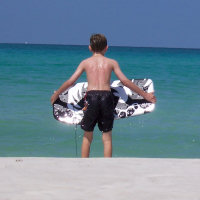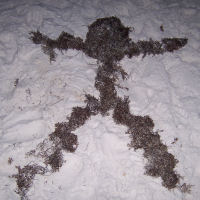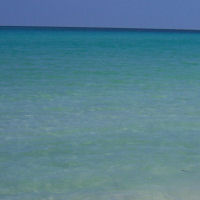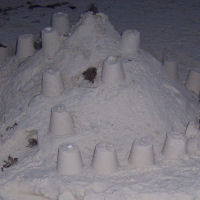Click Transitions - prev and next
Rather than have transitions occur on a timer you can choose to have
transitions occur in response to a click event. The prev and
next options are used to identify the elements which should be the
triggers for prev/next transitions. When used in conjuction with timeout =
0 the effect is a manual slideshow. The values for prev and next can be a
DOM element or any valid jQuery selection string.
Next   |
Prev/Next   |
More Click Transitions - timeout and pager
You can combine an automatic slideshow (timeout-based) with manual controls by using a non-zero timeout value. The next slideshow (below, left) is setup to perform auto-transitions every 3 seconds, pause-on-hover, and perform a manual advance when the image is clicked.The pager option is used for creating full navigation controls.
This option instructs the plugin to create navigation elements, one for each
slide, and add them to the container identified by the value of the pager
option.
Manual and Auto Advance   |
Pager        |
When using the pager option, the generated navigation elements
are simply anchors. So if you set the pager option like so:pager:
'#nav'
you can style the anchors like this:#nav a {
background-color: #fc0 }
In addition, the navigation element for the active slide is given
the class activeSlide so that it can be styled uniquely.
The pager in the example above is styled like this:
#nav a { border: 1px solid #ccc; background: #fc0; text-decoration: none; margin: 0 5px; padding: 3px 5px; }
#nav a.activeSlide { background: #ea0 }
#nav a:focus { outline: none; }
Stopping a Slideshow
If you need to stop a running slideshow you can pass the string 'stop' to the
cycle method.
$('#slideshow').cycle('stop');Manually Pausing a Slideshow
If you need to pause/resume a running slideshow you can pass the string
'pause' or 'resume' to the cycle method.
$('#slideshow').cycle('pause');Callbacks
Before and after callbacks are supported for each slide transition. Within
the context of your callback method, this is the element that is
transitioning in. The before option specifies the name of the
callback function to be invoked immediately before a slide transition. The
after option specifies the name of the callback method to be
invoked at the end of a slide transition.
The before and after callback methods are passed three arguments:
- the DOM element for the slide that is being transitioned in (same as this)
- the DOM element for the slide that is being transitioned out
- the options object


 |
Status area |
The callbacks for the example above are implemented
as follows: | |
Non-Image Content
The examples thus far have all used image content. This was done for simplicity and because images demo very well. But there is no restriction on slide content. Your slides can contain whatever you wish.

St Andrews State Park - Panama City, FL This park is one of the most popular outdoor recreation spots in Florida. 
Located in the Florida panhandle, the 1,260 acre park is situated on a scenic peninsula and is well known for its sugar white sands and brilliant blue water. 
The ocean provides opportunity for endless fun. From boogie boarding to snorkeling to swimming and boating, there is always something to do. |
1 There are tons of options you can use to control
how and when your slide transitions occur. Test them out and see what ones
you like. Check out the many examples on this website and see which ones
catch your eye.
2 There are tons of options you can use to control
how and when your slide transitions occur. Test them out and see what ones
you like. Check out the many examples on this website and see which ones
catch your eye.
3 There are tons of options you can use to control
how and when your slide transitions occur. Test them out and see what ones
you like. Check out the many examples on this website and see which ones
catch your eye. |
Next up: Advanced Demo (Part 1) ››